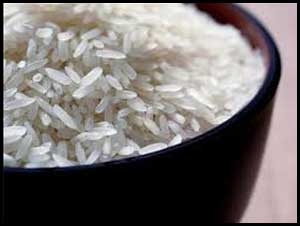- Home
- Editorial
- News
- Practice Guidelines
- Anesthesiology Guidelines
- Cancer Guidelines
- Cardiac Sciences Guidelines
- Critical Care Guidelines
- Dentistry Guidelines
- Dermatology Guidelines
- Diabetes and Endo Guidelines
- Diagnostics Guidelines
- ENT Guidelines
- Featured Practice Guidelines
- Gastroenterology Guidelines
- Geriatrics Guidelines
- Medicine Guidelines
- Nephrology Guidelines
- Neurosciences Guidelines
- Obs and Gynae Guidelines
- Ophthalmology Guidelines
- Orthopaedics Guidelines
- Paediatrics Guidelines
- Psychiatry Guidelines
- Pulmonology Guidelines
- Radiology Guidelines
- Surgery Guidelines
- Urology Guidelines
Eating rice does not increase diabetes risk: European Journal of Nutrition

Singapore: Rice is rich in carbohydrates and can have a high GI score that is known to increase diabetes risk. People with diabetes often refrain from eating rice due to the same. But now a new study has found that higher consumption of rice is not substantially associated with a higher risk of type 2 diabetes (T2D).
The study, published in the European Journal of Nutrition, further substantiates that recommendations for a reduction in the consumption of white rice in Asian populations for prevention of T2D may be effective only if substitute foods are considered carefully.
Also Read: Four dried fruits That are safe snacking options for Diabetics
White rice is a common staple food in the Asian population and results from several previous studies have shown its association with risk of T2D.
Woon-Puay Koh, National University of Singapore (NUS), Singapore, and colleagues assessed whether intake of rice, noodles, and bread was associated with T2D risk in an ethnic Chinese population.
The study involved data from 45,411 male and female Chinese participants in the Singapore Chinese Health Study cohort aged 45–74 years. Usual diet was evaluated by a 165-item semi-quantitative food frequency questionnaire. Physician-diagnosed T2D was self-reported during two follow-up interviews. During a mean follow-up of 11 years, a full 5,207 incident cases of T2D were documented.
Also Read: Pasta & Rice prepone onset of Menopause : Study
Key Findings:
- Rice intake was not associated with higher T2D risk despite the large variation in intake levels, although the precise risk estimate depended greatly on the substitute food.
- Replacing one daily serving of rice with noodles, red meat and poultry were associated with higher T2D risk.
- The replacement of rice with white bread or wholemeal bread was associated with lower T2D risk.
"If substitute foods are considered carefully, consumption of white rice in Asian populations might not be bad for people with T2D," emphasizes the authors.
For further reference log on to https://doi.org/10.1007/s00394-018-1879-7

Disclaimer: This site is primarily intended for healthcare professionals. Any content/information on this website does not replace the advice of medical and/or health professionals and should not be construed as medical/diagnostic advice/endorsement or prescription. Use of this site is subject to our terms of use, privacy policy, advertisement policy. © 2020 Minerva Medical Treatment Pvt Ltd